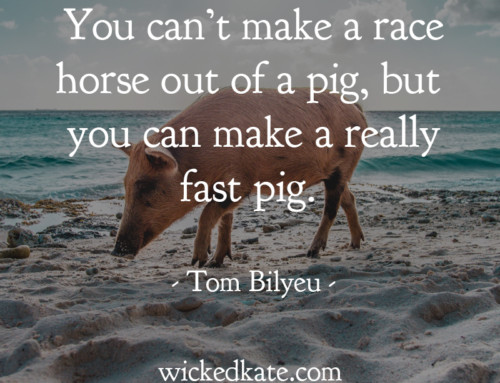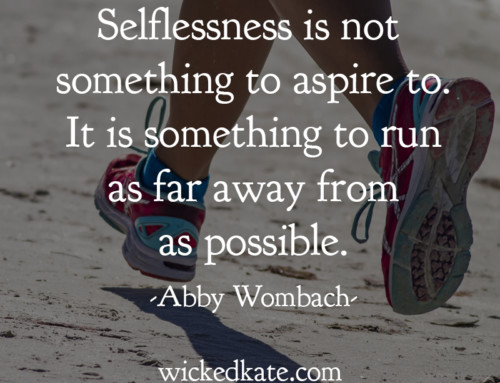This is part two of two. Check last Friday for the first part :).

Max Taken by KTB 1 9 2008
6. Everyone needs attention. Ignoring a problem doesn’t resolve it. Self explanatory. If someone is important to you, give them your time. If someone isn’t, don’t. If you give them your attention in an honest way (without distraction), they will appreciate it and will stick around. If you do not give them that attention, eventually they will either act out or disappear from your life. Your choice. If it’s worth it, give of yourself.
7. When you believe in what you are doing and who you are working with, results will be achieved, even if they are not the results you anticipated. I never knew that I was going to be a dog trainer. I never knew that I would love it, and I never knew that I would find one of my best friends by doing it. I never knew that the person who was teaching me to communicate with my dog was going to be a person who taught me to communicate with others in general, and with myself. But she was, and I did. WickedAwesomeA helped me to believe not only in the value of what we did together, but to be passionate about it, and to believe that together we pretty much rocked the competition to the core. That belief led me to success in training and sales, as well as the ability to build personal confidence. If you have someone you work with that is a negative force, the opposite affect is made by that person. Think about it, and be honest with yourself. Are you building up or tearing down your world. Your relationships (human, canine, work, family, and friends) are all influenced by your attitude. Check it.
8. Communication comes in many forms. Barkley (my dog) is not Einstein. He does, however, have fantastic emotional intelligence as do most dogs. Before I had B, I suffered from anxiety on a larger scale than most people. It immobilized me and made me sick on many occasions. After I got B, I found that when I was gearing up for a good mental breakdown, he would either come to me and put his head on my lap to calm me, or would run into another room away from me. Similar reactions occurred when I exhibited anger and frustration or stress. WickedHubby finally pointed out that “the dog had my number”. Hubs and Barks were able to see what I couldn’t, and communicate it to one another. Now that I know the “signals”, I have learned to calm down and take things slower when B starts acting strangely. He’s trying to communicate, and I have to be quiet and listen.
9. Forgiving mistakes, and exercising patience, can often result in speedier achievement than forcing the issue. Nothing happens all at once. Rome wasn’t built in a day. Yeah, tell that to the immediate gratification generation. I was definitely part of this, and still to this day experience large amounts of stress when I don’t get my way right away. Training taught me that swallowing my frustration for a moment, using it as a motivator to change my plan of attack and run at my issues in a new way, with patience for myself, others, and the issues at hand gave me better results than forcing the issue. Forcing things to happen wastes resources and talent. It also creates stress and destroys relationships. This lesson alone has helped me to not lose it when my two year old needs me to realize that one step at a time is the only way she is ever going to learn. I still struggle with this one, but it’s a huge thing to remember. The dog isn’t going to see or hear you give a signal one time and just miraculously know that they are expected to run across a field to greet you, sit at your feet, and ignore distractions along the way. Not. Going. To. Happen. “Sit/Stay”, “Come”, “AutoSit”, and distraction work are all separate commands/exercises. Putting them together is a fifth effort. Maybe you can’t clean your whole house in one day… Maybe it’s just going to be “the junk drawer” today. You should be proud of finishing THAT. Give it 15 minutes each day, and eventually your house will lose and you will win. Same with learning to run a mile. Start with running down your driveway! I can’t even do that (especially right now…). This lesson is an evolving one, but one that has helped me to raise my 2 yr old, nest my house, keep my 5 animals alive, keep my marriage together, and brush my teeth once in a while…
10. Raising your voice just tells everyone involved that you lost control. Someone is the alpha in every situation. It is most often not the dog who barks the loudest is not the one in control. I am a natural yeller. If you don’t do what I want, and I have the opportunity, my natural inclination was always to just say it louder and slower. Finally, through training and life in general, I learned that this just doesn’t work. If you have a dog barking at you, and you yell at it, you will pretty much guarentee that the two of you are going to have a screaming match. “OH YA!?” “OH YAH?!” No one will win. If you just keep your yap quiet and give the dog/person the opposite of what their yelling for, they’ll learn that it’s not going to work. Let them have their yell. Save your energy. You’ll need it to laugh about the situation later.




